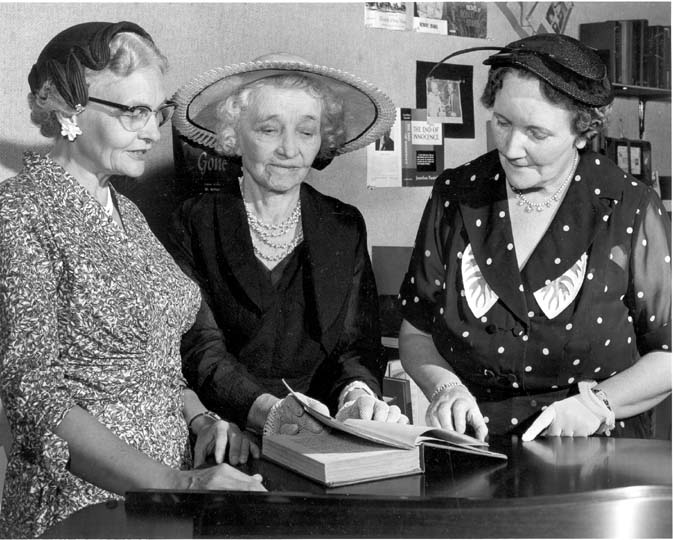In Olive Tilford Dargan’s 1932 novel, Call Home the Heart, a penniless, pregnant woman named Ishma Waycaster navigates life in a rural North Carolina mill village. There, she confronts the abuses of paternalism, capitalism and racism, all while fighting to produce and provide. It’s a double-bind that Dargan, also known by her pseudonym, Fielding Burke, experienced firsthand during the Gastonia Mill strike.
“Dargan was a poet and playwright in the early 20th century, writing in a romantic vein,” says Kathy Ackerman, dean of arts and sciences at Isothermal Community College in Spindale. “But once she became a full-time resident of Western North Carolina and had tenant farmers living on her land, her keen awareness of the oppression of the American working classes crystallized into action. She was tormented by what she perceived to be the unique oppression of Appalachian women.”
Today, some 90 years after Dargan released her jarring text, everything has changed, and nothing has. “In fact, I believe Dargan’s novels are more timely than ever,” says Ackerman. “Her voice is badly needed now.”
Ackerman will discuss Dargan as part of a new female-author series sponsored by the Wilma Dykeman Legacy. The program features lectures on five writers — Dargan, Ellen Glasgow, Zora Neale Hurston, Julia Peterkin and Marjorie Kinnan Rawlings — and three film showings. It launches Thursday, Aug. 10, and runs through Thursday, Dec. 14, at the West Asheville Library.
Jim Stokely, president of the Wilma Dykeman Legacy and son of the author for whom the organization is named, says the series (made possible in part by funding from the N.C. Humanities Council) was inspired by Dargan. Like the other women, she’s a testament to extreme social injustice. “They represent true gender discrimination,” says Stokely, “the effects of which can be seen in their writing.”
Dykeman, best known for her defense of the French Broad River, even paid Dargan a “tribute visit” in her late age. Then living in Asheville, Dargan had become something of a local legend (a historical marker on Haywood Road commemorates her work). Of course, she wasn’t always considered prolific. During the 1930s, her communist sympathizing and relations with socialist Rose Pastor Stokes didn’t bode well with readers. According to Ackerman, red-baiting “cloaked Dargan’s work in obscurity,” limiting her early impact on Southern literature.
Lucinda MacKethan, professor emerita of English at N.C. State University, argues that Glasgow had a more immediate influence on the genre. “She is the matriarch of a modernist movement,” says MacKethan. Rightfully, the series begins with a discussion of Glasgow’s novel, Barren Ground, on Aug. 10.
Published in 1925, Barren Ground follows Dorinda Oakley, a female maverick who brings sustainable growing methods to her family’s fallow farm. Like Glasgow, who had several interesting love affairs but never fell into matrimony, Oakley gets by without a husband for much of the text. The men who do enter her life, including beau Nathan Pedlar, don’t stay for long, most succumbing to illness. In isolating Oakley, Glasgow proves that women can be both feminine and strong — the two aren’t mutually exclusive.
According to MacKethan, Barren Ground also demarcates an important shift in genre. “Glasgow thought Southern literature needed more blood and irony,” she says. “She put that into her writing when most texts tended to be idealistic.” The author ditched romanticized depictions of a bucolic South and instead documented the strife that came with industrialization. Other writers would soon follow her lead.
Despite the rising success of female writers in the 20th century, literary pundits continued to place more emphasis on their male counterparts (e.g., Cummings, Hemmingway, Fitzgerald). Stokely says his mother experienced this firsthand. Living in the South, Dykeman fought greedy paternalism and biblical sexism, confronting issues like segregation and water pollution years before her time. “The chances of her — an unknown female mountain writer — getting something published by a New York publisher was zero percent,” says Stokely.
That’s why it took nearly 50 years for Dykeman’s memoir to hit shelves. Discovered as a typewritten manuscript, Family of Earth: A Southern Mountain Childhood was published posthumously last year. “Mother fought obstacles every day of her life,” Stokely says. “She knew in her bones the struggle these writers went through.”
Stokely expects the series to ignite discussion not only on sexism, but also big questions like: “What is realism?” “What are the relationships between humans and their natural environment?” and “What does it mean to be American in the eyes of these writers?” For Ackerman, who has been studying Dargan’s works for 20 years, the last question affords a complicated answer.
“Dargan experienced America at its worst — as a nation astounding in its reactionary and regressive beliefs. She was wide awake to the abuses of one class upon another, of one race upon another, of one sex upon another,” says Ackerman. “But she had hope. She knew it could be better.”
Even today, the writer would likely argue the same.




Before you comment
The comments section is here to provide a platform for civil dialogue on the issues we face together as a local community. Xpress is committed to offering this platform for all voices, but when the tone of the discussion gets nasty or strays off topic, we believe many people choose not to participate. Xpress editors are determined to moderate comments to ensure a constructive interchange is maintained. All comments judged not to be in keeping with the spirit of civil discourse will be removed and repeat violators will be banned. See here for our terms of service. Thank you for being part of this effort to promote respectful discussion.